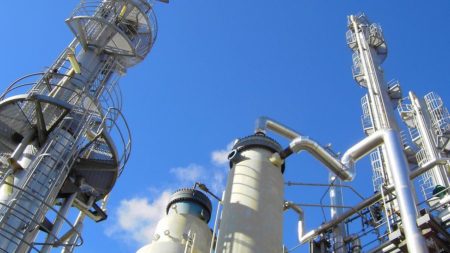
A positioning paper, released by UK HFCA, urges the Government to support the potential of NEH with legislation, financial backing and more nuclear sites, to allow it to become a future energy player in the race to net zero.
In the report, entitled ‘The Role for Nuclear Enabled Hydrogen in Delivering Net Zero’, the valuable attributes of NEH are outlined – including that it is zero carbon, has low-cost energy input, is large scale and offers co-location synergy and energy system connectivity.
The Nuclear Enabled Hydrogen Working Group, set up by the UK HFCA, concludes that investment is necessary – and urgent – to get projects off the ground.
An underpinning role
Marcus Newborough, of ITM Power, a member of the UK HFCA, said: “Net zero solutions require hydrogen to be produced with a zero GHG footprint, which means electrolyser operators will need to source their electricity from renewables and/or nuclear power.
“Unfortunately, it’s difficult for an electricity grid to match supply and demand by integrating a substantial capacity of base-load nuclear generation, while at the same time integrating a substantial capacity of variable renewables.
“Electrolysis can provide the flexibility required to solve this challenge by absorbing nuclear electricity at times of low renewables generation – or vice versa. In addition, it can provide the means for matching nuclear power generation to the steady-state demand for hydrogen that characterises several of our essential chemical processes, such as ammonia and methanol production.
“Nuclear-enabled hydrogen can therefore play an underpinning role in achieving net zero, both for the electricity grid and for industrial clusters.”
In the UK HFCA positioning paper, the association reveals how one nuclear power plant has the potential to generate enough hydrogen to decarbonise the heating of one million homes, or 40,000 hydrogen buses, from a site no more than a few square miles in size, with technology that is available today.
It also stressed that NEH could play a key role in meeting the new UK production target for low carbon hydrogen – which has risen from 5GW to 10GW by 2030.
Celia Greaves, CEO and founder of the UK HFCA, said: “3GW of nuclear power with today’s technology could produce enough hydrogen to meet 22.5% of this new target.
“And in light of the recently updated targets for UK nuclear power – with plans now for 24GW to be online by 2050 – decisive early action is key. With projects reaching final investment decision each year until 2030, the role of NEH in these proposed plant operations must be considered today and decided on in the near future.”
Key recommendations for bringing NEH into the energy mix by 2030, and enabling future growth of the energy vector, encompass accelerating the roll-out of new nuclear plants to produce NEH, building on synergies between industrial clusters and NEH, and providing incentives for NEH.
Additional benefits
The Government’s recently published British Energy Security Strategy includes increased ambitions across nuclear and hydrogen, highlighting their growing importance in the UK’s energy system.
But Ms Greaves said the NEH also offers benefits and roles across the energy system that are not currently recognised in the key energy system models used by the UK Government.
“These include coupling large scale nuclear power stations with electrolysers to generate high purity hydrogen required for fuel cell vehicles, decarbonising the gas grid, decarbonising marine transport with ammonia and decarbonising flights with synthetic aviation fuels,” she said.
This was supported by Allan Simpson, Senior Research Technologist at the National Nuclear Laboratory, and chair of the UK HFCA’s Nuclear Enabled Hydrogen Working Group. He said: “The report highlights the potential for NEH to provide 40GW of hydrogen generating capacity to support decarbonisation by 2050, based on a range of flexible operation of planned capacity and increased demand from alternative applications currently unrecognised in energy system models.
“The hydrogen sector recognises the unique role that NEH can play to support decarbonisation, alongside all other technologies. With the right combination of government support and industry action, delivering these ambitious goals will help deliver net zero and secure energy supplies for the future.”
